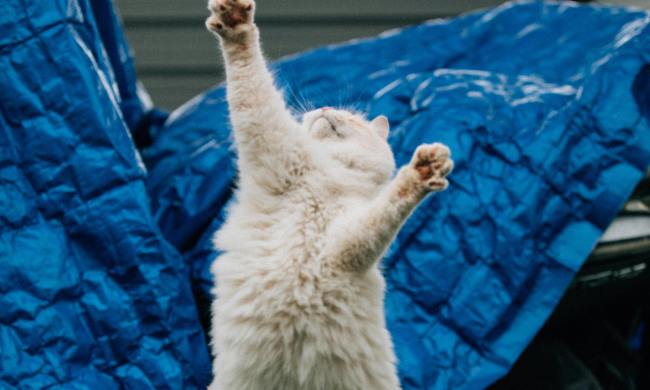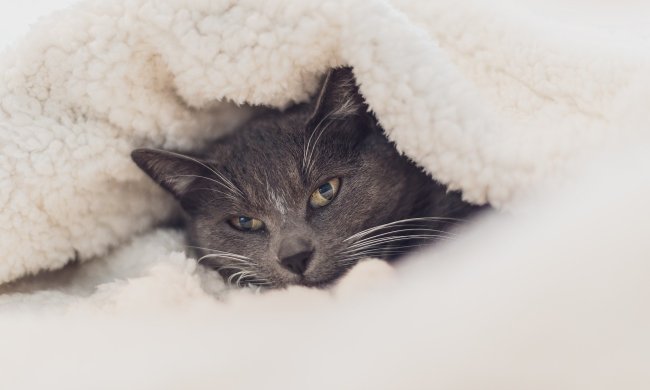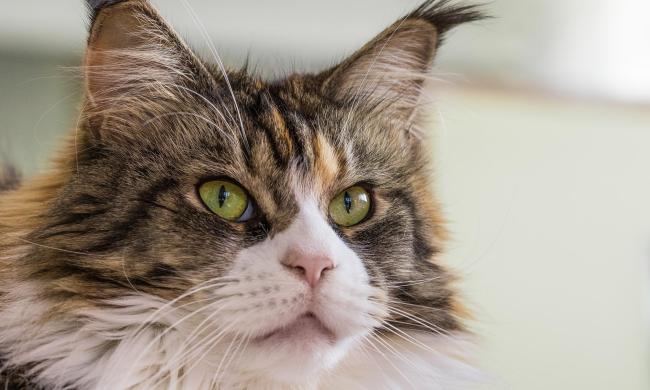It’s no secret that cats love treats, and you might have even stumbled onto that brand or flavor that makes your kitty absolutely wild. Your cat might even be starting to beg for treats or anticipating the time of day when you give him those extra-special snacks. While many cats will go crazy for their treats, some cats take this to the extreme and can actually start to display addictive tendencies. So, is your cat addicted to treats? It’s important to recognize this problem early on and take steps to correct it if it occurs — your cat’s health and well-being could depend on it.
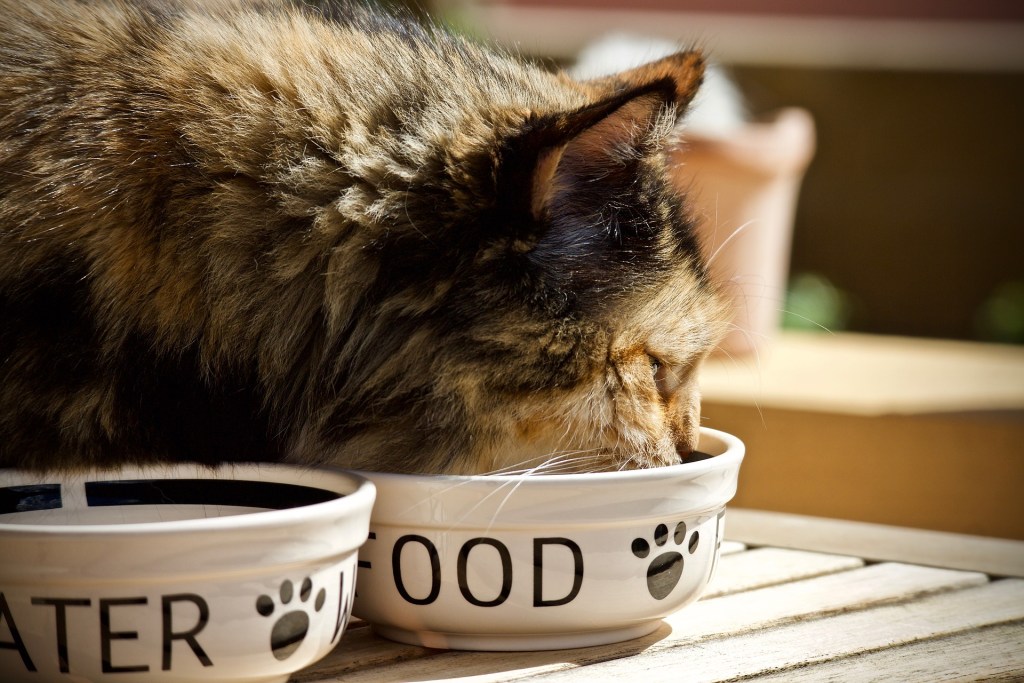
Signs your cat is addicted to treats
If your cat is addicted to treats, you may notice certain new behaviors:
- Meowing and demanding those treats more often
- Your cat may get increasingly upset if you don’t give him the treats he’s asking for
- Jumping onto the couch or counters to get your attention
The problem with too many treats
Your first instinct to stop your cat’s behavior might be to give him what he wants — treats! — but that will only reinforce the lesson that if he begs you, he’ll get treats. If your cat is eating too many treats, his behavior might be just one of the problems that you’ll be dealing with.
Treats tend to be high in calories, and adding more and more of them to your cat’s diet can cause weight gain. In some cases, cats may fill up on treats and won’t eat their food. This can negatively affect their nutrition, since cat food is designed to be a balanced diet, while treats lack the comprehensive nutrition your cat needs.
If your cat does gain weight because he’s eating too many treats, he could be at increased risk for health issues like arthritis, high blood pressure, respiratory problems, diabetes, and more. Being obsessed with treats isn’t just inconvenient, but also can threaten your cat’s health. For your cat’s sake, it’s important to take steps to break this addiction.
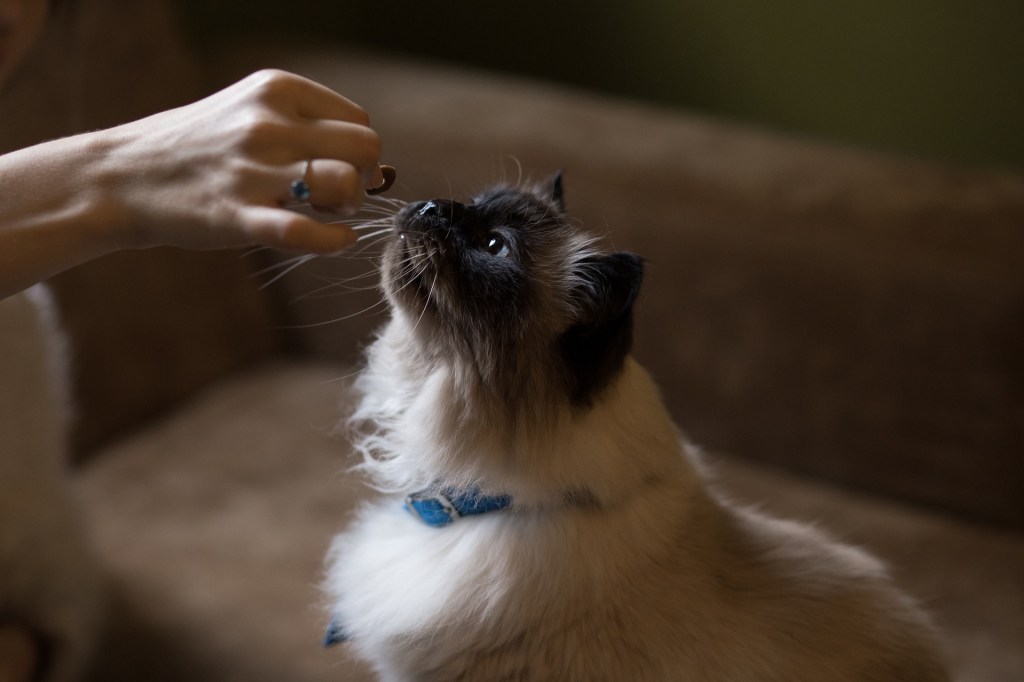
How to put an end to your cat’s addiction to treats
Breaking your cat’s addiction to treats is a gradual process, and you may need to try several approaches before you find the solution that works.
- To start, try changing your cat’s treats. If possible, find a lower-calorie treat in a new flavor that your cat may be less enthusiastic about. You also might want to switch to a more natural treat, like pieces of cooked chicken or salmon. These treats are healthy and deliver nutrients that your cat needs, but given in small portions, reward your cat without all the extra calories.
- You’ll need to adjust how you feed treats, too. If you’re feeding them multiple times a day, give them fewer treats. Try to start gradually reducing how often you’re feeding treats, too. Treats are ideal for rewarding a special behavior, like taking medicine, or as a once-a-day routine, but avoid giving them repeatedly each day, which can encourage your cat’s begging habit.
- It’s also important to take steps to encourage your cat to eat his regular food rather than relying on treats. Consider putting your cat’s dry food into a treat ball or toy in place of actual treats. Your cat will get the experience of playing with his treat toy, but he’ll be getting nutritious food in return. As an added benefit, playing with a treat toy can keep your cat active, so he burns extra calories at the same time.
- You might also try using an automatic food dispenser to give your cat small meals throughout the day. If your cat cleans up all his food and then goes hours until his next meal, he might have come to rely on treats to satisfy his hunger. Feeding smaller, more frequent meals helps keep food in his stomach, quieting that hunger.
Treats are designed to be super tasty, so it’s only natural that your cat will be excited about eating them. When that enthusiasm turns into a bad habit, though, you’ll need to take some steps to keep your cat healthy and to break that habit. If your cat has been addicted to treats for a while, changing his habit can take some time. Remember to stay firm as you make these changes and set new boundaries. Your cat may be upset at first, but remind yourself that you’re making these changes for his health, and because you love him. With some time, he’ll adjust to your new treat habits and will be better off for it.
